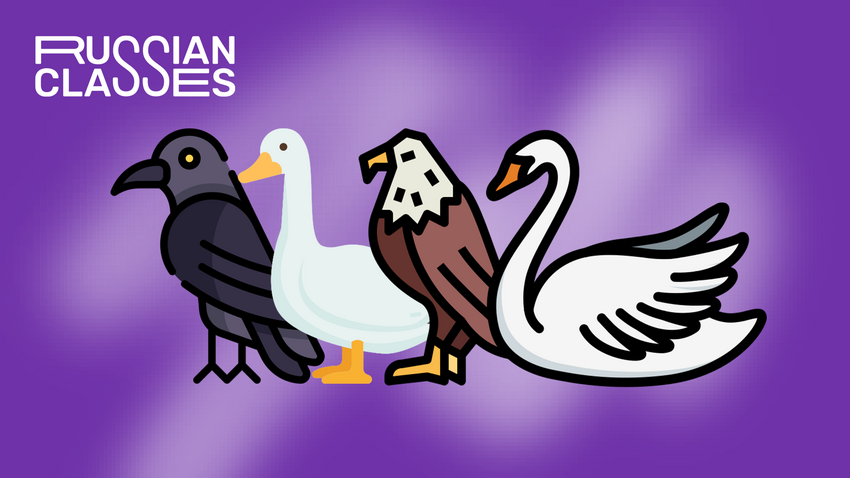
Привет!
Do you remember us walking around Moscow with Kolya? This time I take you around Russia!
Play the video
The first city on our list is Воронеж [Voronezh]. Its name contains the word "ворон", which means "raven". This city is kind of like a second St. Petersburg - it is the site of Peter's first Russian Naval Fleet.
Play the video
The second town is Гусь-Хрустальный [Gus-Khrustalny]. The word "гусь" means "goose", and "хрустальный" means "crystal". The reason for this poetic name is quite plain: the town is one of the oldest centers of the glass industry in Russia.
Play the video
The third town is Орёл [Oryol]. The word "орёл" means "eagle". This city has the official status as the third literature capital of Russia (after Moscow and St.Petersburg). Oryol and the wider Oryol Region are the birthplace of numerous Russian writers and poets, such as Ivan Turgenev, Ivan Bunin and many more.
Play the video
The last one on our list is Лебедянь [Lebedyan'].
Is there a hidden word here?
There sure is! "Лебедь" means "swan". This town is the birthplace of Russian writer Yevgeny Zamyatin. Have you read his dystopian science fiction novel 'We' ("Мы")?
Interesting fact: many etymologists believe that the names of these towns are actually not derived from birds!
Check out more lessons in our Telegram channel, using the tag #russianclasses!
Dear readers,
Our website and social media accounts are under threat of being restricted or banned, due to the current circumstances. So, to keep up with our latest content, simply do the following:
If using any of Russia Beyond's content, partly or in full, always provide an active hyperlink to the original material.
Subscribe
to our newsletter!
Get the week's best stories straight to your inbox